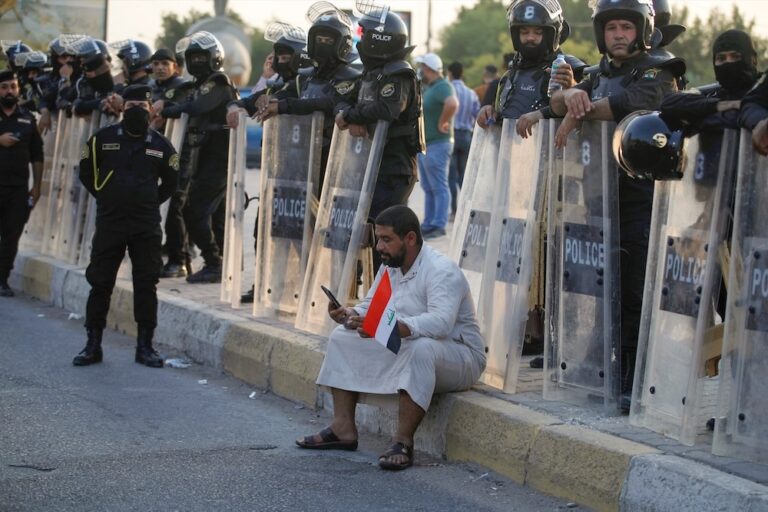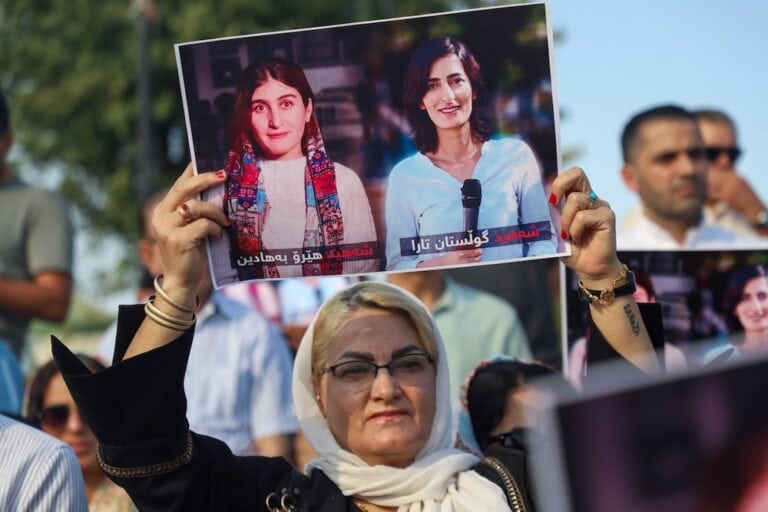Shwan Ahmed's articles described the workings of a vast system of corruption, nepotism and embezzlement allegedly created by leading figures.
(RSF/IFEX) – “We have guns rather than pens to respond to you,” Shwan Ahmed, a freelance journalist and writer based in the Kurdish city of Sulaymaniyah, said he was told on 5 July 2010.
The clearly-worded warning was prompted by two long articles he wrote for the Kurdish independent weekly “Awene” in June 2010 about alleged corruption within Serdam ( http://www.serdam.org/ ), a publishing house founded in 1998 by supporters of the Patriotic Union of Kurdistan (PUK), President Jalal Talabani’s party.
His articles (published in the 8 and 15 June issues) described the workings of a vast system of corruption, nepotism and embezzlement allegedly created by leading figures and important members of the company, including Kurdish writers, poets, novelists, translators and other intellectuals.
The people criticised in the article and Serdam CEO Sherko Bekas issued a response denying all of Ahmed’s allegations. It was published in the 30 June issue of “Awene”.
President Talabani’s secretary also condemned the attacks on Serdam. But Ahmed said he received a threatening phone call on the evening of 5 July from Ari Rauf, the son of one of the persons he implicated in his article, Kurdish poet and novelist Rauf Begard.
A colonel in the PUK security forces, Ari Rauf reportedly told Ahmed: “Shwan, I am going to kill you. We will respond with our guns, not with ink. Watch out, you have been warned. I am going to blow you apart one of these fine days. There will be so many bullets your body will be left in pieces. I am not anyone. I am an old Peshmerga. I will shut you up for good.”
Ahmed immediately reported the threat to police headquarters in Sulaymaniyah and requested police protection.
“I just wrote about corruption in these articles,” Ahmed told Reporters Without Borders. “I based myself on two reports issued by the Council of Observation of the autonomous Kurdistan region of Iraq and other public documents about corruption within the publishing house. Everyone knows about it. It is my duty as a freelance journalist to write about such matters. If we don’t, it means we approve of the system and we are corrupt ourselves.”
Ahmed is known and respected in Iraqi Kurdistan as a journalist specialising in matters relating to political Islam and as a critic of Iraqi Kurdistan’s political system.
Two journalists in Kurdistan have already paid with their lives for being outspoken. They are Soran Mama Hama, who was gunned down on 22 July 2008, and Sardasht Osman, whose body was found on 6 May 2010 two days after he was abducted.
Reporters Without Borders urges the authorities in Iraqi Kurdistan to do everything possible to guarantee Ahmed’s safety and to defuse the climate of tension in which independent journalists work.
The press freedom organisation is planning to conduct a fact-finding visit to Iraqi Kurdistan from 19 to 28 July in which it will meet journalists and representatives of journalists’ organisations. It also hopes to meet members of the Kurdistan regional government in order to express its concern about the deterioration of press freedom and about the safety of journalists.


